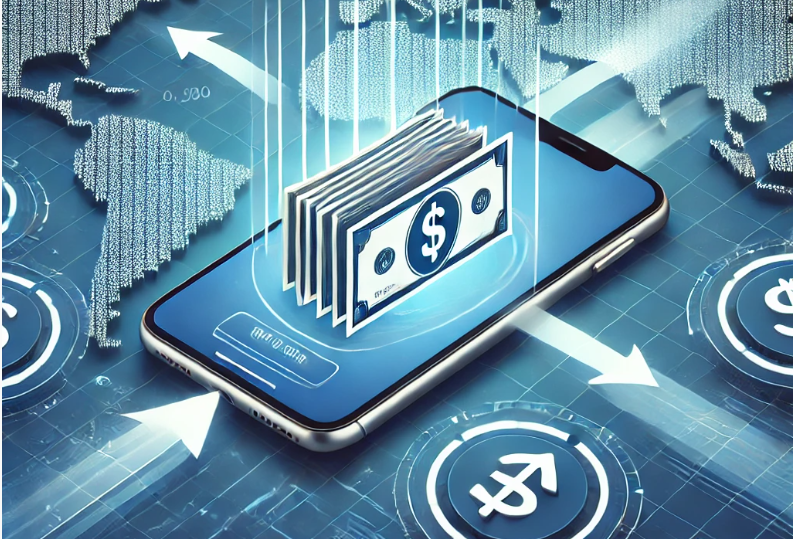- EasyCard
- Trade
- Help
- Announcement
- Academy
- SWIFT Code
- Iban Number
- Referral
- Customer Service
- Blog
- Creator
Is Online Money Transfer Safe? What Are the Risks?
Online money transfer has become an indispensable part of modern financial life. Whether it’s a transfer between individuals or cross-border business transactions, online remittances are widely welcomed for their efficiency and convenience. However, as online money transfers become more popular, concerns about their security have also arisen.

Major Risks of Online Money Transfer
Technical Risks:
- System Failures: Transfers might be delayed, fail, or data could be lost due to server malfunctions or network congestion. For instance, during peak periods, a high volume of transactions might cause the payment system to crash, affecting users’ transfer operations.
- Software Vulnerabilities: Security loopholes in payment software or related applications could be exploited by hackers to steal users’ funds or personal information.
- Network Attacks: Distributed Denial of Service (DDoS) attacks, for example, could render online transfer platforms inoperative, disrupting users’ normal operations.
Human Risks:
- User Errors: Mistakes such as entering incorrect recipient account numbers or amounts can result in transfer errors.
- Password Leaks: Users’ passwords could be too simple or entered in an insecure environment, leading to them being stolen by others.
- Social Engineering Fraud: Scammers might use deceptive methods to gain users’ trust and induce them to make transfers.
Legal Risks:
- Changes in Laws and Regulations: Certain online transfer activities might not comply with new legal requirements, leading to legal issues.
- Legal Restrictions on Cross-Border Transfers: Different countries and regions have varying laws and regulatory requirements for cross-border transfers. Lack of understanding might result in legal risks.
Market Risks:
- Exchange Rate Fluctuations: During cross-border or foreign currency transfers, changes in exchange rates can result in differences in the actual amount received.
- Credit Risks of Payment Institutions: If the chosen online payment institution faces operational problems or bankruptcy, it could affect the security of users’ transfers.
Understanding these various risks highlights the importance of strengthening security measures, prompting platforms to continuously research and develop more effective countermeasures.
Security Measures for Online Money Transfer
Technical Measures:
- Encryption Technology: Encrypt data during transmission to ensure that even if the information is intercepted, it is difficult to decipher. For example, using SSL (Secure Sockets Layer) or TLS (Transport Layer Security) protocols to encrypt network connections.
- Authentication Mechanisms: Employ various authentication methods such as passwords, fingerprint recognition, facial recognition, and SMS verification codes to verify user identity and prevent unauthorized access.
- Firewalls and Intrusion Detection Systems: Block external malicious attacks and intrusions, and promptly detect and respond to potential security threats.
Platform Measures:
- Collaboration with Security Agencies: Partner with cybersecurity companies and financial regulatory bodies to obtain the latest security intelligence and guidance.
- Regulatory Review: Undergo regular reviews and assessments by regulatory authorities to ensure the platform’s security meets standards.
- Risk Assessment and Monitoring: Continuously evaluate transaction risks and monitor for abnormal activities, such as large or frequent unusual transfers.
User Measures:
- Enhance Security Awareness: Understand common online fraud techniques and risks to improve self-protection awareness.
- Choose Compliant and Reliable Transfer Platforms: Carefully assess the reputation and qualifications of platforms, such as BiyaPay, which has obtained financial licenses in countries like the United States, Canada, and New Zealand, and offers optimal transfer channels, fast local transfers in most countries or regions, low fees, and no limit on the amount.
- Protect Personal Information: Avoid disclosing sensitive personal information on untrustworthy websites or platforms.
In conclusion, ensuring the security of online money transfers requires continuous technological advancements, stringent platform management, and high vigilance from users. Only through joint efforts can we minimize risks while enjoying the convenience of online money transfers, making the flow of funds safer and smoother, and safeguarding our financial lives.
*This article is provided for general information purposes and does not constitute legal, tax or other professional advice from BiyaPay or its subsidiaries and its affiliates, and it is not intended as a substitute for obtaining advice from a financial advisor or any other professional.
We make no representations, warranties or warranties, express or implied, as to the accuracy, completeness or timeliness of the contents of this publication.




Contact Us
Company and Team
BiyaPay Products
Customer Services
is a broker-dealer registered with the U.S. Securities and Exchange Commission (SEC) (No.: 802-127417), member of the Financial Industry Regulatory Authority (FINRA) (CRD: 325027), member of the Securities Investor Protection Corporation (SIPC), and regulated by FINRA and SEC.
registered with the US Financial Crimes Enforcement Network (FinCEN), as a Money Services Business (MSB), registration number: 31000218637349, and regulated by FinCEN.
registered as Financial Service Provider (FSP number: FSP1007221) in New Zealand, and is a member of the Financial Dispute Resolution Scheme, a New Zealand independent dispute resolution service provider.




















